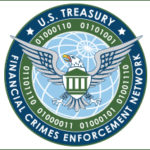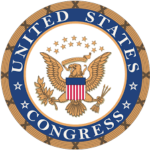FinCEN’s director says that a provision of the USA Patriot Act actually allows banks to share more financial crime data among themselves.
 The director of the Financial Crimes Enforcement Network (FinCEN) at the United States Department of the Treasury wants to make it easier for banks to share information about real and potential financial crimes.
The director of the Financial Crimes Enforcement Network (FinCEN) at the United States Department of the Treasury wants to make it easier for banks to share information about real and potential financial crimes.
Citing a provision of the USA Patriot Act, Director Kenneth A. Blanco has put together a fact sheet and addressed the sharing issue in a recent speech before the annual American Bankers Association/American Bar Association Financial Crimes Enforcement Conference. That provision of the USA Patriot Act allows financial crime information sharing, Blanco says in a statement.
The provision the director references is Section 314(b) of the USA Patriot Act.
Under Section 314(b), financial institutions have the ability to share information with one another, and are protected from civil liability, in order to better identify and report potential money laundering or terrorist financing.
The Patriot Act itself was passed by the U.S. Congress in the month after the 9-11 terrorist attacks in 2001 and signed into law by President George W. Bush.
Perhaps significantly, the USA Patriot Act’s name itself is an acronym, which stands for Uniting and Strengthening America by Providing Appropriate Tools Required to Intercept and Obstruct Terrorism.
The FinCEN clarifications are meant to result in banks sharing more information among themselves, which, as one veteran observer of the financial services industry points out, they don’t normally like to do. And that’s because banks are worried that they could be sued if they judge incorrectly that someone’s information is potentially criminal.
“After carefully considering feedback from the financial industry,” FinCEN is offering the following general clarifications:
- “A financial institution may share information relating to activities that it suspects may involve possible terrorist financing or money laundering.
- “Although this may include circumstances in which a financial institution has information about activities it suspects involve the proceeds of a specified unlawful activity (SUA), financial institutions do not need to have specific information that these activities directly relate to proceeds of an SUA, or to have identified specific laundered proceeds of an SUA. Nor do financial institutions need to have made a conclusive determination that the activity is suspicious in order to benefit from the statutory safe harbor.
- “Further, financial institutions may share information about activities as described, even if the activities do not constitute a ‘’ This can include an attempted transaction, or an attempt to induce others to engage in such a transaction. This allows financial institutions to avail themselves of Section 314(b) information sharing to address incidents of fraud or cybercrime, and other predicate offenses, where appropriate. In addition, there is no limitation under Section 314(b) on the sharing of personally identifiable information, or the type or medium of information shared, to include sharing information verbally.
- “An entity that is not itself a financial institution under the Bank Secrecy Act may form and operate an association of financial institutions whose members share information under Section 314(b). Notably, this includes compliance service providers.
- “An unincorporated association governed by a contract among the group of financial institutions that constitutes its members may engage in information sharing under Section 314(b).”
And finally, financial “institutions subject to an anti-money laundering program requirement under FinCEN regulations, and any qualifying association of such financial institutions, are eligible to share information under Section 314(b).”
Information sharing is voluntary, FinCEN points out, emphasizing that it “strongly encourages financial institutions to participate to enhance their compliance with anti-money laundering/counter-financing of terrorism requirements.”
 In a related development, the 2021 National Defense Authorization Act, which passed the U.S. Congress this past weekend, includes a provision that Bloomberg News called a “victory for Wall Street banks, which worked with law enforcement on legislation that will overhaul money-laundering protections.
In a related development, the 2021 National Defense Authorization Act, which passed the U.S. Congress this past weekend, includes a provision that Bloomberg News called a “victory for Wall Street banks, which worked with law enforcement on legislation that will overhaul money-laundering protections.
“The highest-profile provision,” the Bloomberg dispatch adds, “will create a business-owner database meant to bar use of anonymous shell companies to launder money. But it also includes some modernization of banks’ money-laundering requirements that will allow the firms to use technology to sniff out illicit transactions instead of the current reliance on large numbers of personnel.”
At this writing, the outgoing president has threatened to veto the act.
FTF News readers with additional questions about information sharing should contact FinCEN at 866-326-8314 or go to sys314a@fincen.gov .
For the full FinCEN fact sheet about information sharing, including details about submitting a registration to FinCEN, go to https://bit.ly/37r1ZHL
Need a Reprint?